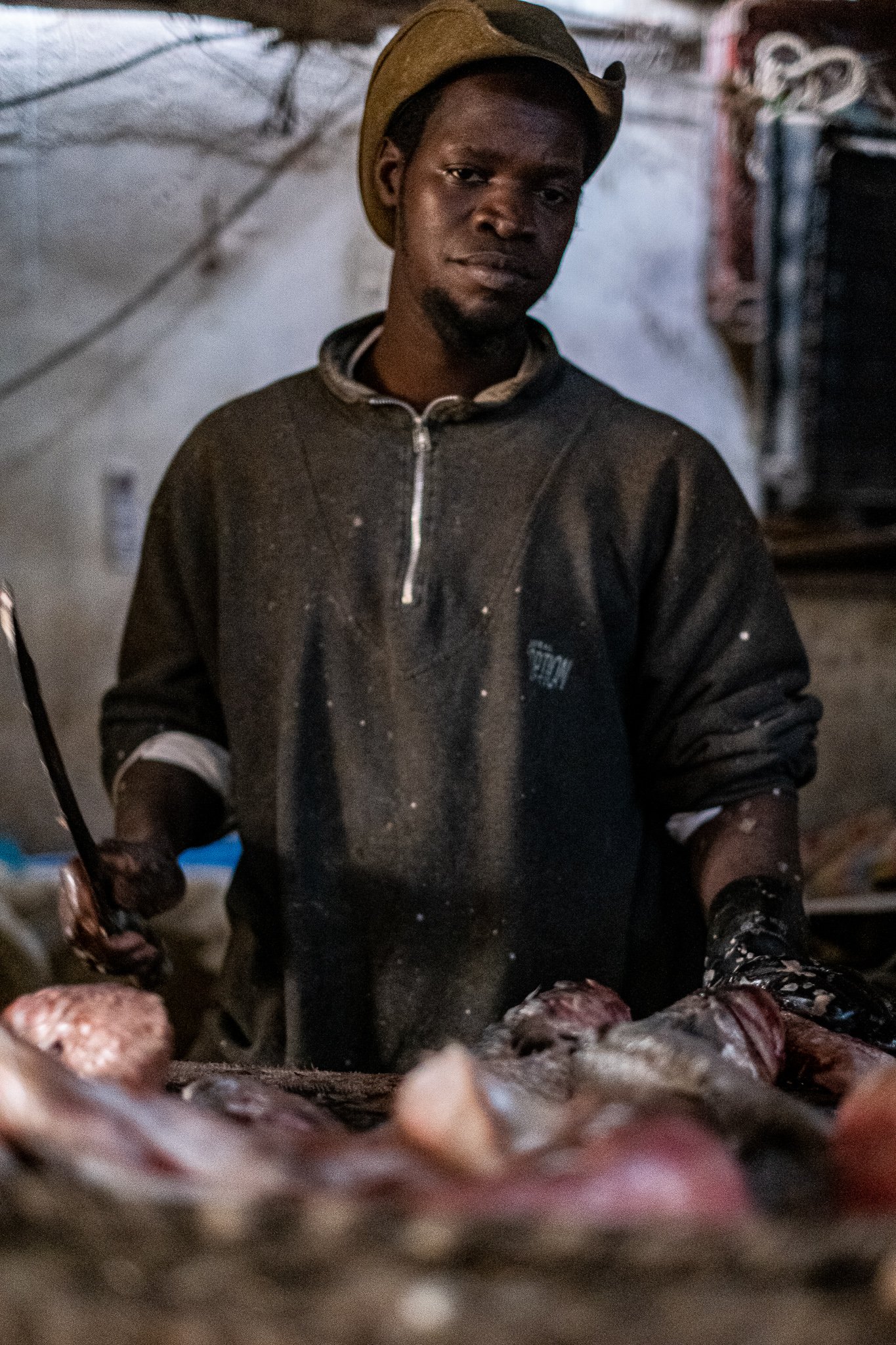commuting through the sahara - mauritania - 2022
Every day, many of us commute to work. Either by foot, bike, car, or public transportation. Some of us spend minutes on our commute, some hours. In Mauritania’s north for some it takes up to 24-26 hours. And as if this would not be enough of a stretch, the commute itself is all but luxurious - Welcome to Mauritania’s ore train.
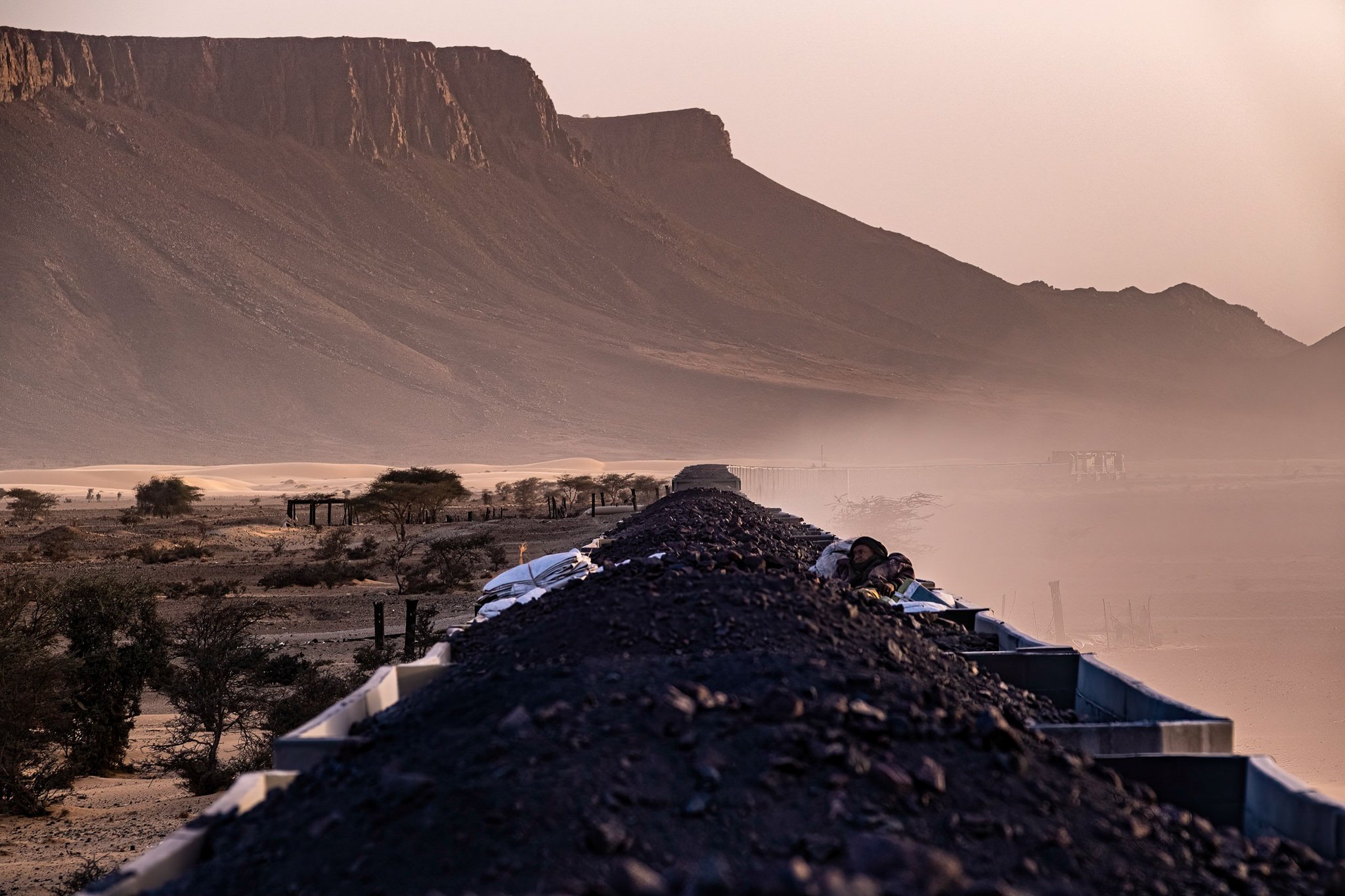
The train runs 650km along the north-western Sahara transporting iron ore from the desert town of Zouérat to Nouadhibou, a fishing town at the Atlantic Ocean. The freight train is operated by the Société Nationale Industrielle et Minière (SNIM) which allows people to hop onto the carriages, either filled with dusty iron ore heading out of the desert or empty when leaving the Atlantic land inwards.
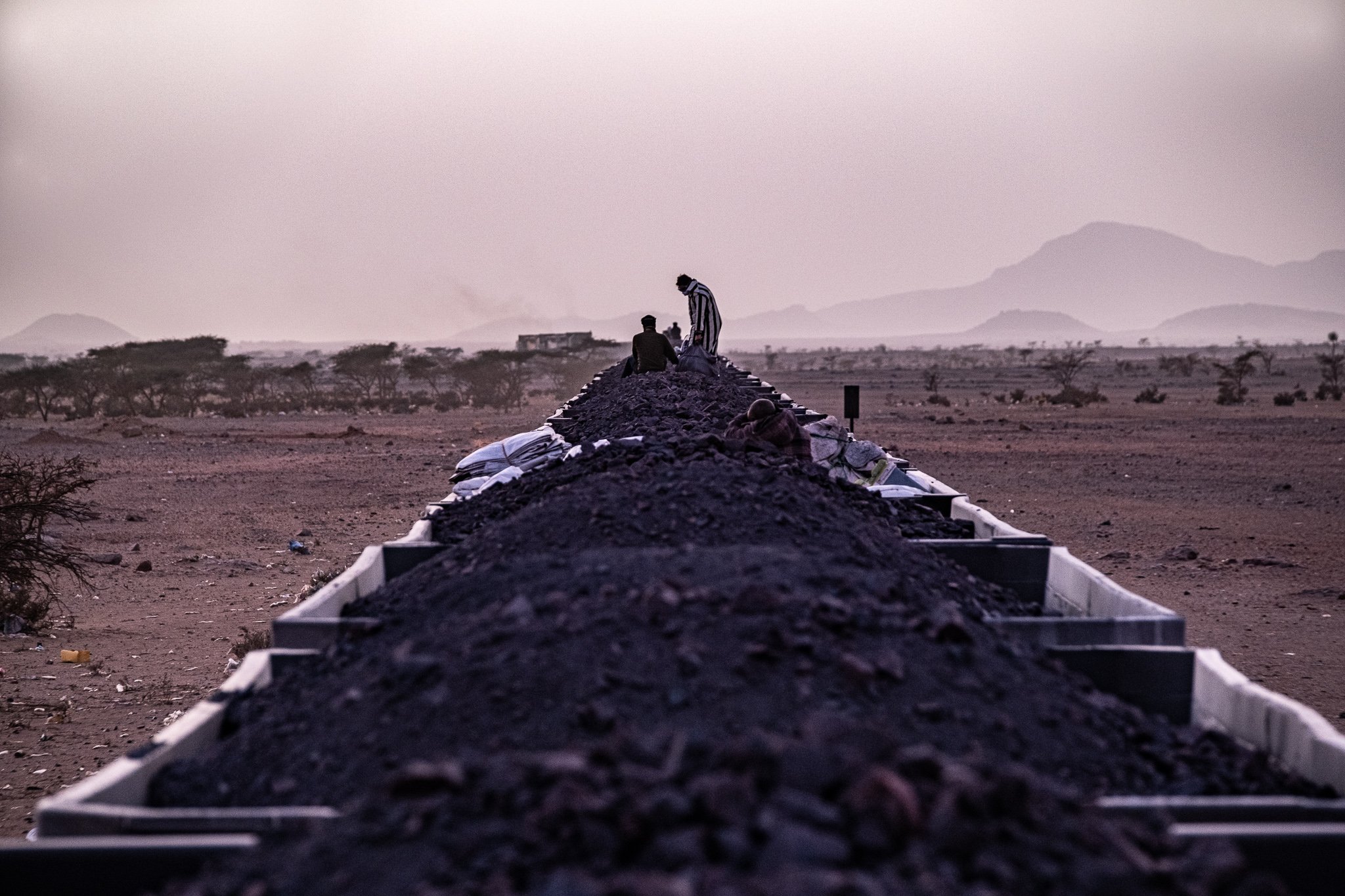
It’s 11 am when we jump off the carriages. My face is black from the ore dust that blew into my face throughout the whole journey. The countless violent jolts from the open-air carriages slamming into each other, the bitterly cold night, and yesterday’s harsh sun are vivid memories of the past. It took us 24 hours to reach the outskirts of Nouadhibou. As the train stops the passengers start unloading the goods destined for the Ocean town. Mattrasses, empty boxes, and big white bags are packed into cars and minivans that take off towards town just a couple of minutes later.

Why do people take on this cumbersome journey? The answer is simple: the 650 km long railway between the two cities takes less time and is cheaper than taking a minivan on a 550 km detour via the only road leading through Mauritania’s capital, Nouakchott.

Time to destination is especially important when fresh goods are transported from the Atlantic Ocean into the desert. E.g. fruits, vegetables, or fish. With the latter being abundantly available in Mauritania’s waters, Nouadhibou is the hub of the country’s fishing industry.

Therefore, many people in Nouadhibou earn their living by either working in the fish processing industry or by selling fish on local markets, like the one in Zouérat.
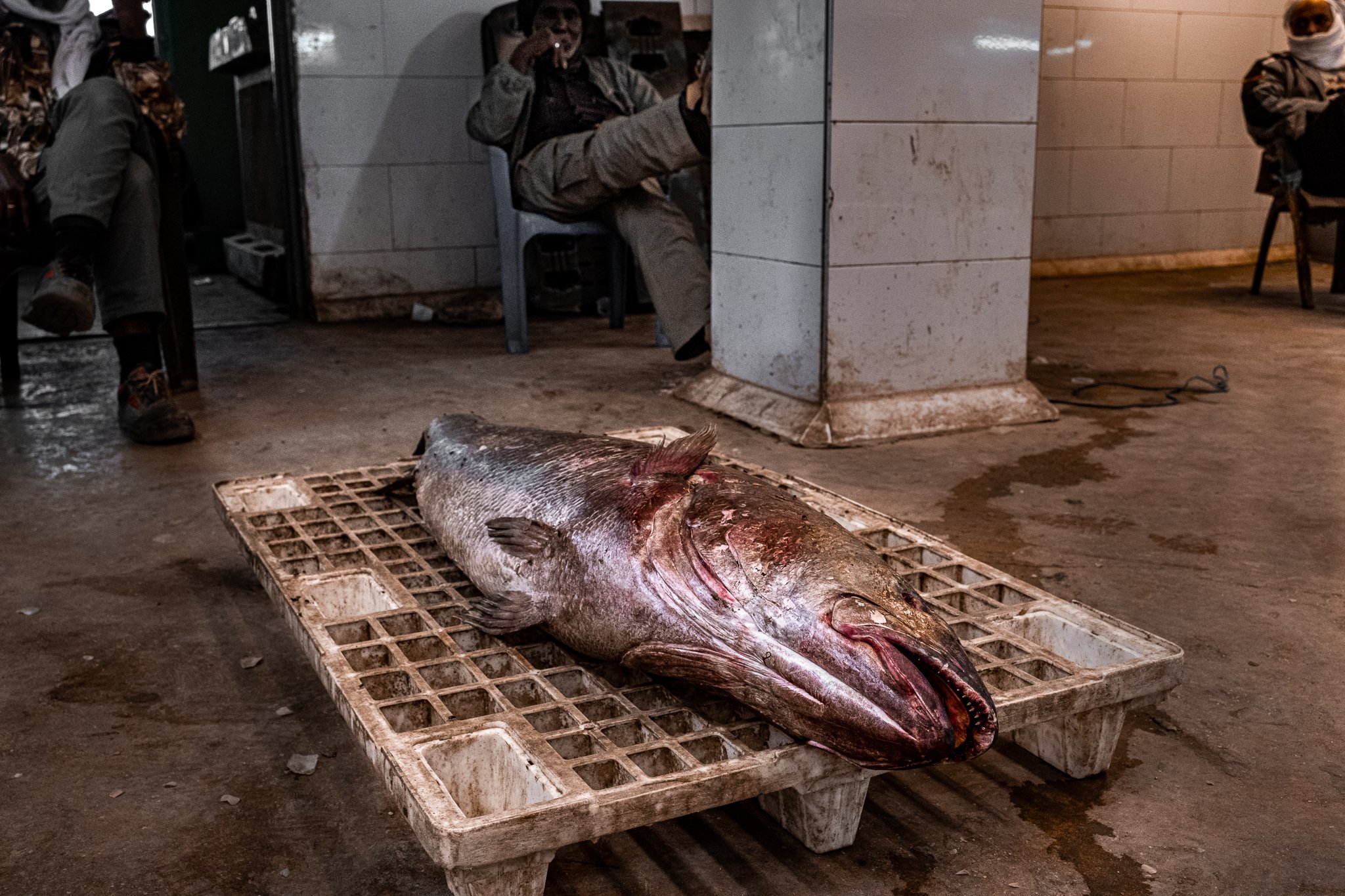
I’m waiting for 5 hours, it’s 5 pm and dawn starts to set in. The train has no announcements nor a schedule. It runs when the carriages are all filled with iron ore or when empty and ready to head back into the desert.
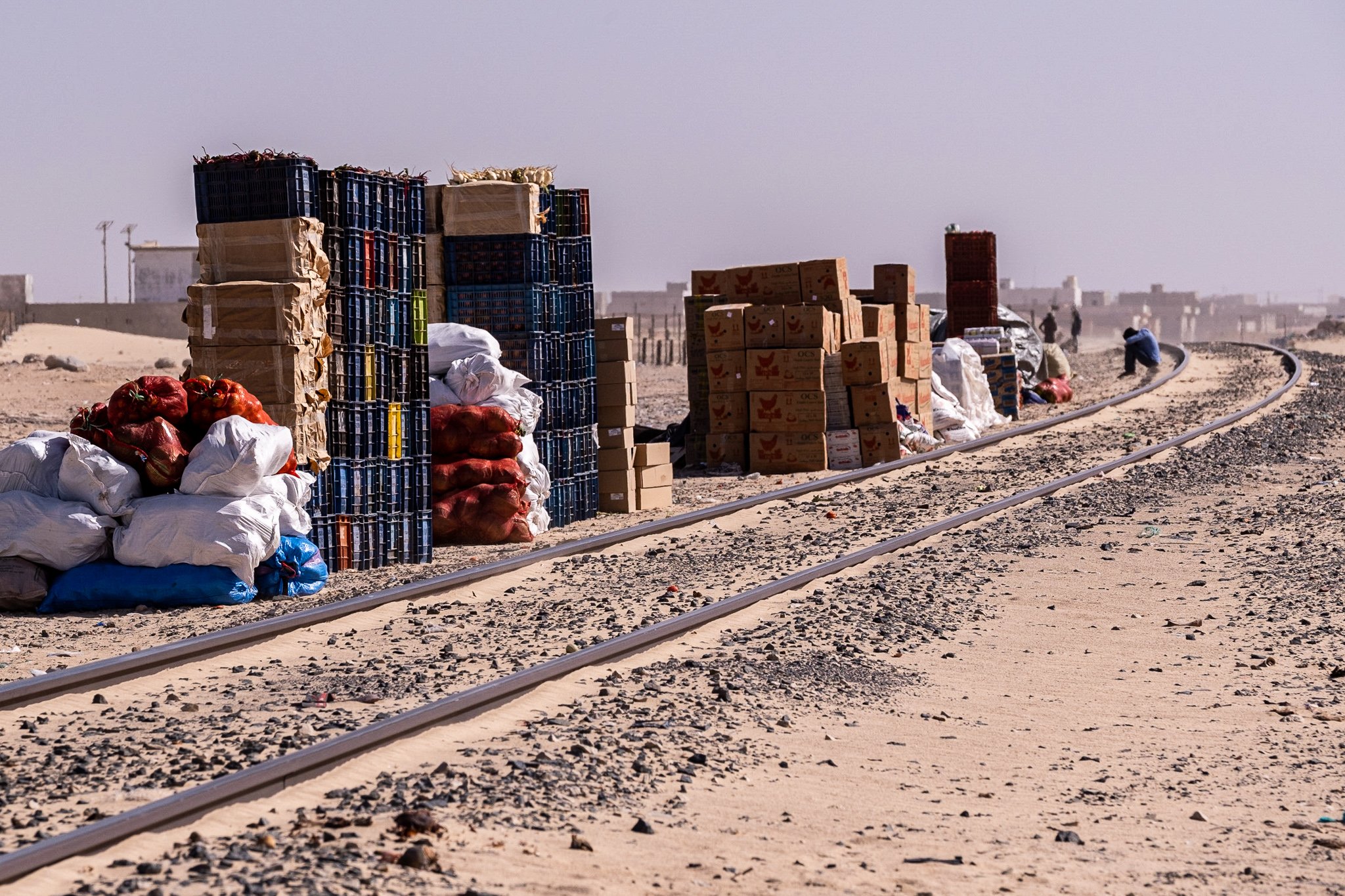
I’m sitting in between boxes of fruit, vegetables, rice, and fish piled onto each other. It’s 6:15 and I hear the roaring diesel engines in the distance. Everyone who was waiting for hours gets up while bonfires that were set up to heat tea during the waiting time are put out in a hurry.


As soon as the train stops a new delivery of goods is loaded into the carriages. We hop onto the train and take a seat on the carriage’s floor. The train slowly starts moving again and we prepare ourselves for another cold night in order to make the delivery in time.

